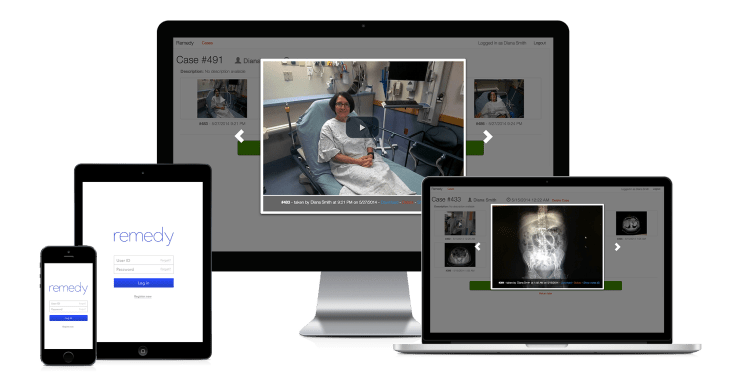While Google Glass has generated a healthy debate over privacy, etiquette and whether the device will ever gain broader acceptance in society, there are some obvious specialty use cases for Glass.
Remedy, a startup founded by two sisters who are a Thiel fellow and medical student, is betting that doctors will find Google Glass useful in quickly collecting and piecing together case data on patients.
They’ve done a pilot with three Harvard-affiliated hospitals in the Boston area to test out a Google Glass app with some paired desktop software that lets physician assistants quickly collect and share visuals of patients to surgeons on call. Normally, these assistants just call the surgeons over the phone and verbally describe the status of the patient.
But through Google Glass, they can efficiently send over videos and photos describing a patient’s pallor or gait.
The Glass experience is pretty basic. You use Glass to record photos and videos of the patient using the voice control commands.
Remedy co-founders Noor and Gina Siddiqui found that doctor’s didn’t necessarily want all the “Minority Report”-style visuals with vital signs on the heads-up display. They just wanted to quickly dip in and out of photos and case data on patients.
So the magic is in syncing that data to case management software that lets doctors quickly flip through a full portfolio of data, photos and video of a patient to quickly make a decision. In one case, a patient was rushed into surgery because a surgeon using Remedy overruled the physicians assistant’s diagnosis. Through the app, they recognized that the patient needed more urgent care.
The pilot was very small with 25 cases, eight surgeons and six physician’s assistants. However, 91 percent of the surgeons said they found it useful for managing patient treatments.
Yet for the Siddiquis, what was important was that patients felt OK with their doctors using Glass and that the software even influenced some care decisions.
“The fact that people are actually changing what they’re doing is pretty incredible,” said Noor Siddiqui, a Thiel fellow.
More importantly, she says that all of the patients involved felt comfortable with their health care providers using Google Glass to take pictures or video of them.
